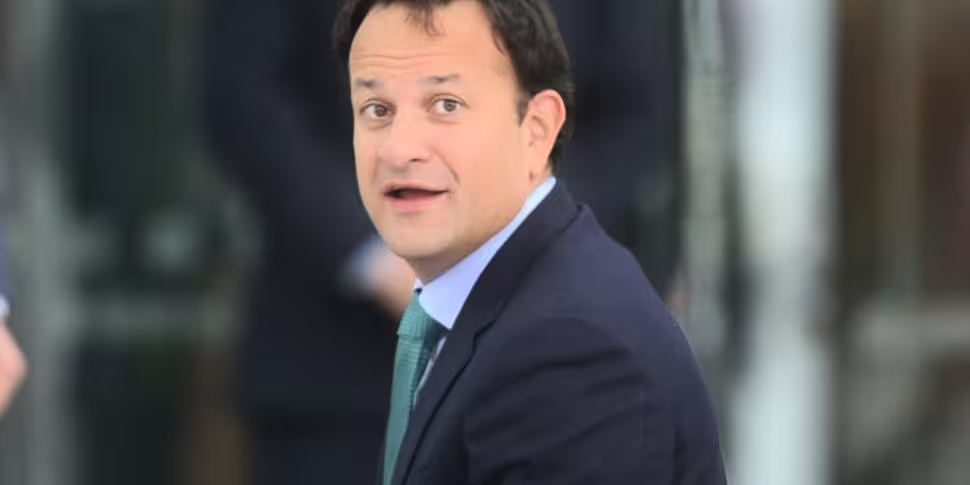The Tánaiste Leo Varadkar has defended the Government's decision not to offer everyone in the country holiday vouchers.
Instead, there will be a tax rebate for people who spend money holidaying in Ireland or going to local restaurants.
Sinn Féin has criticised the July stimulus package - calling it miserly and saying people who do not pay tax will not benefit from the rebate.
But Mr Varadkar told Pat Kenny: "What we are doing for the tourism and hospitality sector - other than not having to pay commercial rates for six months, extending the Wage Subsidy Scheme, improving the restart grant - as well as those three things, there is this stay and spend initiative.
"People who spend money on a weekend away in Ireland, or even in their local restaurant or hotel, if they spend more than €25 they can claim money back.
"And that's an incentive really to get people spending, because there's actually a lot of money believe it or not building up in savings accounts because people aren't spending at the moment.
"And that's one of things we're doing to encourage people to spend because that's the best way to get people back to work."
"Anyone who pays income tax or USC will benefit from this scheme - so that's 2.3, 2.4 million people.
"Only Sinn Féin would think that people who pay income tax are high earners, it's actually pretty much everyone in Ireland who's working and also a lot of pensioners as well.
"It will be simple: you just take a picture of the receipt on your phone, and you can send it via an app to the Revenue Commissioners and you'll get the rebate in the next tax year.
"So if you spend it this year you'll get the money back next year, and so on.
"A voucher system has been done in other countries, it's not impossible.
"You could go down that model - [it's] not straightforward though, in Ireland in particular, where we don't actually have a list of every adult and every child in the country and where they live.
"It would certainly take a while to get up and running, it would be expensive to administer, you'd see some people not getting the voucher, you'd see some people getting two - it would have been very complicated.
"And also bear in mind what the idea is behind this: the idea is to stimulate people who do have a little bit of money to get them to spend more.
"The idea is that by giving somebody the 20% back, they might spend €200 or €300 on that weekend away or in that restaurant.
"If they got the voucher, they might just spend the voucher".
On tapering the Pandemic Unemployment Payment (PUP) and Wage Subsidy Scheme to lower levels, Mr Varadkar said: "The main news in relation to the Pandemic Unemployment Payment is that it's being extended.
"When it was introduced back in March it was put in place as a temporary measure to protect people's incomes because the places where they worked were closed.
"Since then about 800,000 people benefited from the PUP at some point - we're down around 300,000, we think it'll fall below 300,000 in the next week or so.
"But it was to end in the middle of August, and we thought that was too soon.
"So we're extending it well into next year, but it is being phased out over that period to bring it in line with normal job seekers benefit because we didn't think in the longer term it'd be fair or affordable to have different rates for different people depending on when they lost their jobs".
Earlier, Mr Varadkar said such payments could be repurposed to deal with the fallout from Brexit.
"There's extra money from my department in particular to help businesses that trade with the UK to prepare for Brexit", he told Newstalk's political correspondent Sean Defoe.
"But more significantly, if you look at the way this package is structured, it runs through to the end of the first quarter of next year.
"The Pandemic Unemployment Payment, the Wage Subsidy, the VAT cut - all of those things run into February and March of next year, April in some cases.
"Why did we make that decision? Because Brexit's coming: at least in terms of trade Brexit, if you like, political Brexit already happened but trade Brexit will happen on the 31st of December this year.
"So if you look at what's happening for example in Britain, they're ending their wage subsidy in October - same in Northern Ireland - they're ending their VAT cut at the end of December.
"We thought 'no, we actually needed a plan that runs through to the spring of next year' - so that it covers Brexit as well as what's happening as a result of the pandemic".
On the re-opening of schools, Mr Varadkar agreed with Taoiseach Micheál Martin that they should be fully re-opened next month.
"Overall, I am very confident that the schools will open as planned at the beginning of the academic year, before the end of August, that all children will return to school.
"But it will be different - children and students will be sitting in a different formation in classes, there will be sanitation, there will be social distancing - certainly between the adults and the kids - classes won't be mixing as much as they would have in the past.
"So it is going to be different, but it will be done, and it can be done and we know from other countries that they've managed to do it so I don't see why we can't either".









